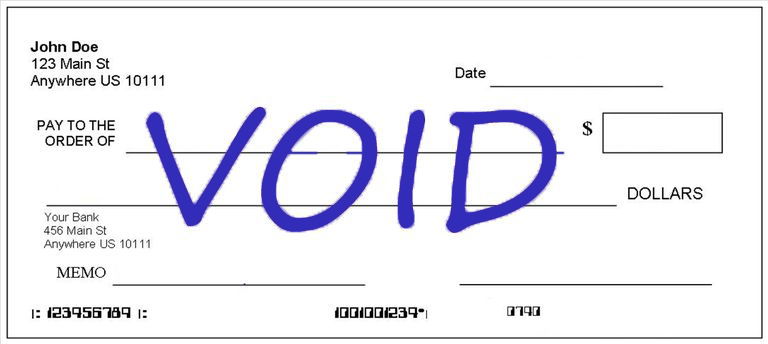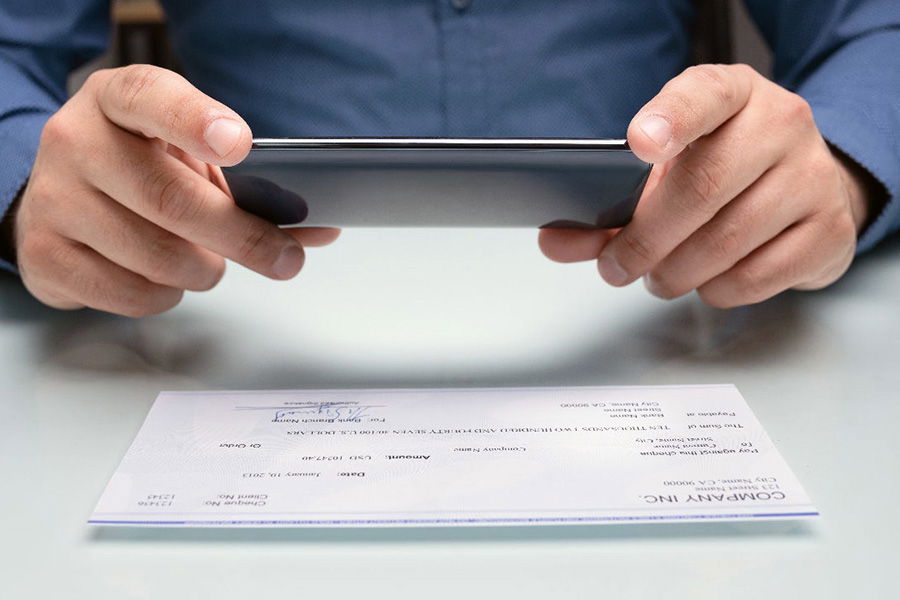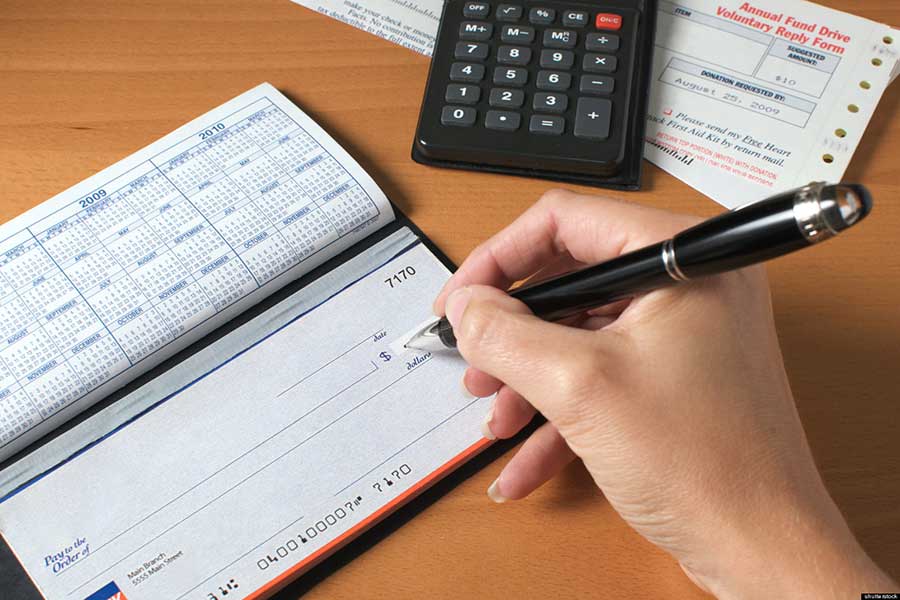Depositing a check doesn’t mean instant access to cash. Depending on the type of check and your bank, it could take a few days—or even longer—for the money to show up in your account.
Check clearing is the process banks use to verify a check and transfer funds from the sender’s account to yours. Until that process is complete, the money isn’t actually available—even if it shows up in your balance.

If you spend the funds before the check clears, you could get hit with overdraft fees or bounced checks. That’s why it’s important to know how long clearing takes and what you can do to speed things up.
What is check clearing, and how does it work?
Check clearing is the process banks use to move money from the person who wrote the check to the person who deposited it. Until that process is complete, the funds aren’t officially in your account.
Even though you can see a pending deposit right away, banks need to make sure the check is real and that the check writer has enough money in their account. That’s why the money isn’t immediately available to spend.
Check clearing happens in a few key steps: the check is endorsed, deposited, routed to the check writer’s bank, verified, and then settled. We’ll walk through each of those steps next.
Step-by-Step Check Clearing Process
There’s more going on behind the scenes than most people realize. Here’s what happens after you deposit a check:
- Endorsement – You sign the back of the check to allow your bank to process it.
- Deposit – You give the check to your bank. This can be done in person, at an ATM, or through your mobile banking app.
- Transit – Your bank sends the check to the check writer’s bank, either electronically or physically.
- Clearing – The check writer’s bank confirms the check is valid and that there’s enough money in the account.
- Settlement – The money officially moves from the sender’s account into yours. Only then are the funds fully available.
How Check Type Affects Clearing Time
Not all checks clear on the same schedule. Some are considered more secure, which means faster access to the funds.
- Personal checks – Personal checks usually take 1 to 5 business days to clear, depending on the bank and your account history.
- Business checks – These can take 2 to 7 business days. Banks often take longer to verify checks written from a business account.
- Cashier’s checks – Cashier’s checks are issued directly by a bank, so they often clear within 1 to 2 business days.
- Certified checks – Certified checks are personal checks guaranteed by the check writer’s bank. They typically clear in 1 to 2 business days.
- Government checks – Checks from the IRS or Social Security Administration are usually available the next business day.
What can delay a check from clearing?
Several factors can slow down the check clearing process. Here are the most common ones:
- Amount of the check – Large checks often trigger a longer hold while the bank confirms the funds.
- Account history – New accounts or accounts with recent overdrafts may face longer wait times.
- Check origin – Checks from unfamiliar banks or mailed from distant locations can take longer to process.
- Suspicious activity – If a check is flagged for potential fraud, the bank may delay clearing until it finishes its review.
- Banking schedule – Checks deposited after business hours, on weekends, or during holidays won’t begin clearing until the next business day.
Does how you deposit a check affect clearing time?
Yes—how and when you deposit a check can change how quickly the money clears. Banks have cut-off times, and some methods give you faster access than others.
- In-person deposit – Depositing a check at a branch during business hours is usually the fastest option. The teller can process it right away, and you may get same-day or next-day availability.
- ATM deposit – These deposits can take longer, especially if made after your bank’s daily cut-off time. Most banks use 5:00 PM local time as the deadline for same-day processing.
- Mobile deposit – Mobile apps make it easy to deposit checks from anywhere, but banks sometimes delay access for mobile deposits—especially if the amount is large or your account is new.
To speed things up, always deposit before the cut-off time and keep an eye on your bank’s mobile deposit limits and policies.
What is a check hold, and why do banks use them?
A check hold means the bank is temporarily freezing access to your deposit. You’ll see the money in your balance, but you won’t be able to use it until the hold is lifted.
Banks place holds to protect themselves—and you—from check fraud or insufficient funds. The delay gives them time to confirm that the check is real and that the person who wrote it has enough money to cover it.
If the check is flagged as risky, the bank may delay your access even longer.
Types of Check Holds
Banks use several types of holds depending on the situation. Here are the most common ones:
- Case-by-case hold – This applies to checks that are higher than your usual deposits or from unfamiliar sources. Banks often need more time to confirm these.
- Exception hold – If the deposit doesn’t follow your usual pattern or raises internal red flags, an exception hold may apply.
- Large deposit hold – If you deposit more than $5,000 in one day, your bank might hold the amount above that threshold for extra time.
- New account hold – If your account is less than 30 days old, most banks will place longer holds on checks to reduce the risk of fraud or bounced deposits.
How Long Checks Take to Clear at Major Banks
Here’s how long it typically takes for checks to clear at some of the biggest banks. These are general time frames—actual clearing times can vary based on check amount, account history, and region.
- Bank of America – Personal checks usually clear in 1 to 2 business days. Business and large checks may take up to 5 days.
- Chase – Most personal checks clear in 1 to 3 business days. New accounts or large deposits may take longer.
- Wells Fargo – Offers next-day availability for some checks, but others may take up to 3 business days.
- Citibank – Clears most checks within 1 to 2 business days, but holds can apply to large or suspicious deposits.
Regional processing times and the length of your banking relationship may also affect how quickly your check clears.
Do mobile deposits take longer to clear?
Mobile check deposits don’t always take longer—but they often do. Here’s why.
When you use your bank’s mobile app to deposit a check, the image is submitted electronically. The bank still has to verify the check and may place a hold if the deposit doesn’t meet certain criteria.
Why mobile deposits may trigger a longer hold:
- The check is for a large amount
- Your account is new or has a history of overdrafts
- The check is from a lesser-known bank or sender
- The image is blurry or improperly endorsed
How to reduce mobile deposit delays:
- Deposit early in the day, before your bank’s cut-off time
- Endorse the check clearly and write “For mobile deposit only”
- Keep the check until the funds are fully cleared
- Use mobile deposit for smaller, routine checks
Always review your bank’s mobile deposit policy so you know when the money will be available.
How to Get a Check to Clear Faster
You can’t control every part of the check clearing process, but there are ways to speed it up.
- Deposit at a branch early in the day – This gives the bank time to process it before the daily cut-off. It also allows for faster verification if needed.
- Ask if partial funds can be made available – Some banks may release a portion of the deposit right away, especially if you ask at the time of deposit.
- Use wire transfers or ACH instead – If you need funds urgently, a wire transfer is usually same-day. ACH transfers are also faster than waiting for a check to clear.
- Maintain a good banking history – Customers with established accounts and no overdraft issues are less likely to face long holds.
Alternatives to Paper Checks
Paper checks are still common, but there are faster and safer ways to send or receive money.
- Zelle, Venmo, PayPal, Cash App – Great for sending money to people you know. Transfers are quick, and you avoid waiting for a check to clear.
- Wire transfers – Best for large, one-time payments. They cost more, but funds usually arrive the same day.
- ACH transfers – Good for payroll, bills, or scheduled payments. Slower than wires, but reliable and often free.
Digital payments remove the risk of a bounced check and usually offer better tracking and security.
Final Thoughts
Waiting for a check to clear can be frustrating—especially if you’re counting on that money to pay bills or cover expenses. But once you understand how the process works, you can avoid surprises and plan around delays.
Whenever possible, choose faster deposit methods, ask about partial availability, and avoid spending funds until they’re officially released. If speed matters, consider using a wire transfer or digital payment instead of a paper check.
Need to make sure your money clears faster next time? Start by building a strong relationship with your bank. That alone can make a big difference.
Frequently Asked Questions
Can I cash a check without it clearing first?
No. You can’t access the full amount until the check clears. Some banks may allow partial withdrawals, but the rest is held until the funds are verified.
What time do checks clear?
Most banks have a daily cut-off time, often around 5:00 PM local time. If you deposit a check before the cut-off, that day counts as the start of the clearing period. If you deposit after the cut-off—or on a weekend or holiday—processing starts the next business day.
In most cases, you’ll see the money in your account before the full clearing is complete. But the funds aren’t truly yours to spend until the bank officially releases them.
How long will my bank hold a $10,000 check?
Federal regulations (Regulation CC) require banks to make the first $5,525 of a check available within one to two business days. The rest can be held for additional time—up to seven business days in many cases.
That said, banks often adjust based on your history. If you’ve been a customer for years and have a clean record, you may get faster access to the full amount.
What happens if I deposit a fake check?
If you deposit a fake check—even by accident—the bank will eventually reject it. You’ll lose access to the funds and could face fees or even fraud investigations, depending on the situation.
What happens if a check bounces after it clears?
Even if a check “clears,” the money isn’t guaranteed to stay in your account. Banks often issue provisional credit, meaning they give you access to funds before the check is fully settled.
If the check later bounces—because of fraud or insufficient funds—the bank can reverse the deposit. This can leave you with a negative balance, overdraft fees, and even bounced payments if you already spent the money.
That’s why it’s smart to wait until the check is officially settled before making big purchases or transfers.



